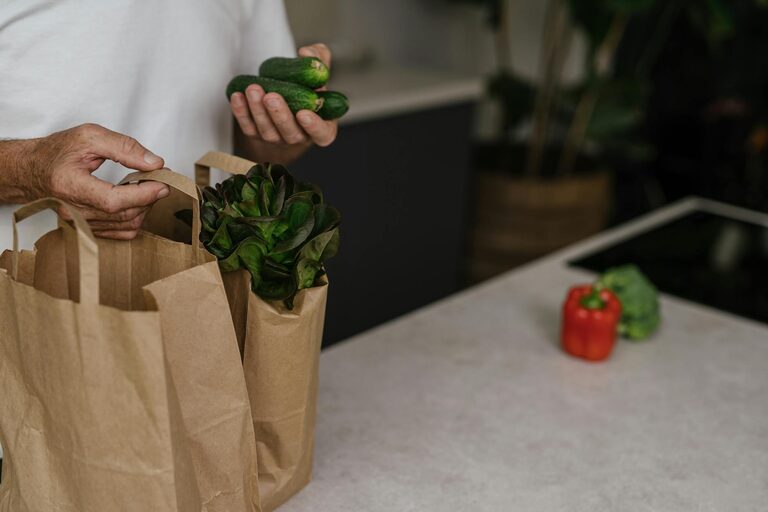Simple and Effective Ways to Reduce Food Waste at Home

Reducing food waste at home is a great way to save money, conserve resources, and minimize your environmental impact. Every year, millions of tons of edible food are thrown away worldwide, which not only wastes money but contributes to greenhouse gas emissions. Fortunately, making a few small changes in your kitchen habits can lead to significant reductions in food waste. Here are some simple and effective ways to help you get started.
Understand the Impact of Food Waste
Before jumping into solutions, it helps to understand why reducing food waste matters. Food production uses water, energy, and land. When food is wasted, all those resources are wasted too. Additionally, food scraps in landfills produce methane, a potent greenhouse gas. By reducing waste, you save money, conserve resources, and help reduce pollution.
Plan Your Meals Ahead
One of the best ways to avoid food waste is to plan your meals for the week. When you know exactly what you’ll be cooking, it’s easier to buy just what you need.
– Create a weekly meal plan: Make a list of meals you want to prepare, including breakfasts, lunches, and dinners.
– Make a shopping list: Based on your plan, write down exactly which ingredients and quantities you need.
– Stick to your list: Avoid impulse buys that might go unused.
Shop Smartly
Shopping with a plan helps, but there are additional tips for making your purchases more efficient.
– Buy loose fruits and vegetables: This way, you can pick only the amount you need instead of pre-packaged portions.
– Choose versatile ingredients: Foods that can be used in multiple recipes reduce the risk of spoilage.
– Avoid bulk buying perishables unless you are sure you can use them in time.
Store Food Properly
Improper storage often leads to food spoiling faster than it should. Here’s how to keep your food fresh longer.
– Use airtight containers: Store leftovers, chopped veggies, and opened packages in sealed containers to maintain freshness.
– Keep fruits and vegetables separate: Some fruits release ethylene gas, speeding up ripening and spoilage of nearby veggies.
– Know your fridge zones: Store dairy, meat, and produce in the optimal sections of your refrigerator to extend their shelf life.
– Freeze surplus: If you won’t use something before it goes bad, freeze it for later use.
Understand Date Labels
Food labeling can be confusing. “Best before,” “use by,” and “sell by” dates don’t always mean the food is unsafe to eat after the date passes.
– “Best before” indicates quality, not safety. Food may still be fine to eat after this date.
– “Use by” is a safety date and should be taken seriously, especially for perishables.
– Learn to trust your senses—if food smells and looks good, it’s often okay to consume.
Use Leftovers Creatively
Leftovers are a goldmine for reducing waste and saving time and money.
– Make soups, stews, or stir-fries: Combine leftover vegetables, grains, and proteins into new meals.
– Repurpose stale bread: Turn it into breadcrumbs, croutons, or bread pudding.
– Incorporate overripe fruit: Use in smoothies, baking, or jams rather than throwing it out.
Practice Portion Control
Cooking large portions can often lead to uneaten food. Try these tips to reduce leftovers:
– Cook smaller amounts: Prepare meals in quantities that match the number of people eating.
– Serve family-style: Allow diners to take only what they want.
– Save extras: Pack away leftovers immediately for future meals or snacks.
Compost Food Scraps
Despite best efforts, some food waste is inevitable. Composting turns your scraps into valuable fertilizer rather than landfill waste.
– Start a home compost bin: Use fruit and vegetable peels, coffee grounds, eggshells, and yard waste.
– Avoid composting meat, dairy, and oils as they can attract pests.
– Use compost in your garden or houseplants: It enriches the soil and promotes plant health.
Educate Your Household
Involve family and housemates in waste reduction.
– Share these tips: Make sure everyone understands how their actions impact food waste.
– Label leftovers clearly: Date and name containers so people know what needs eating first.
– Create a waste log: Track what gets tossed to identify problem areas.
Conclusion
Reducing food waste at home doesn’t require drastic lifestyle changes. By planning meals, shopping smartly, storing foods properly, and creatively using leftovers, you can make a positive difference. Not only will your wallet thank you, but you’ll also contribute to a healthier planet. Start with one or two of these tips today and build from there—small actions add up!
